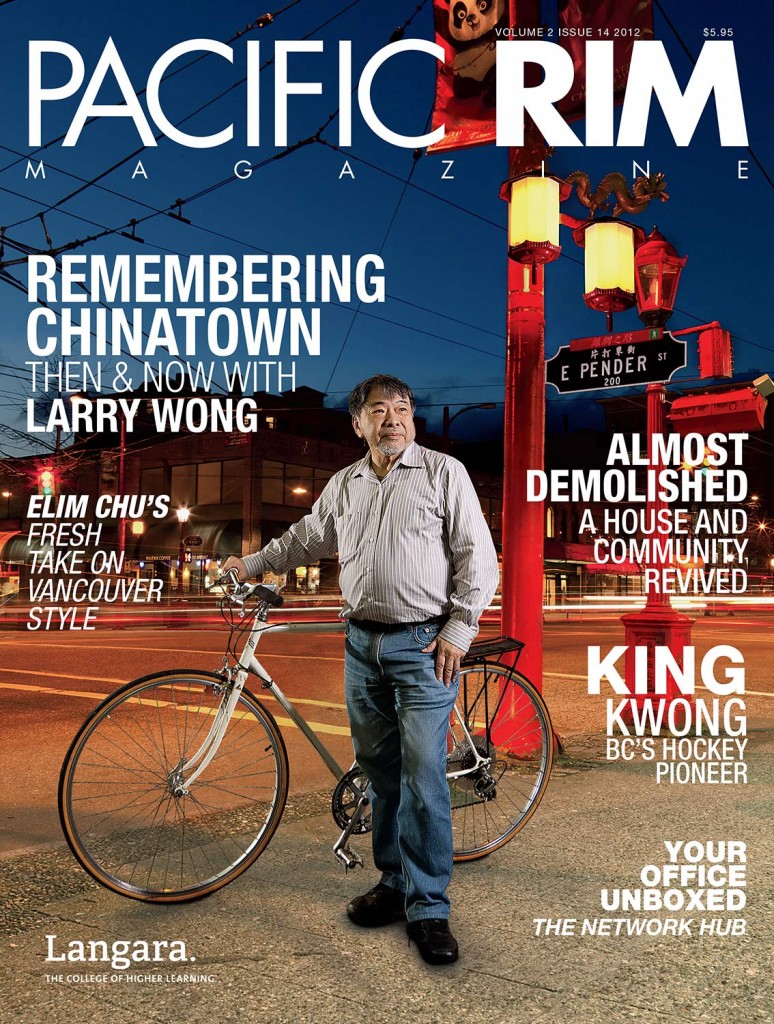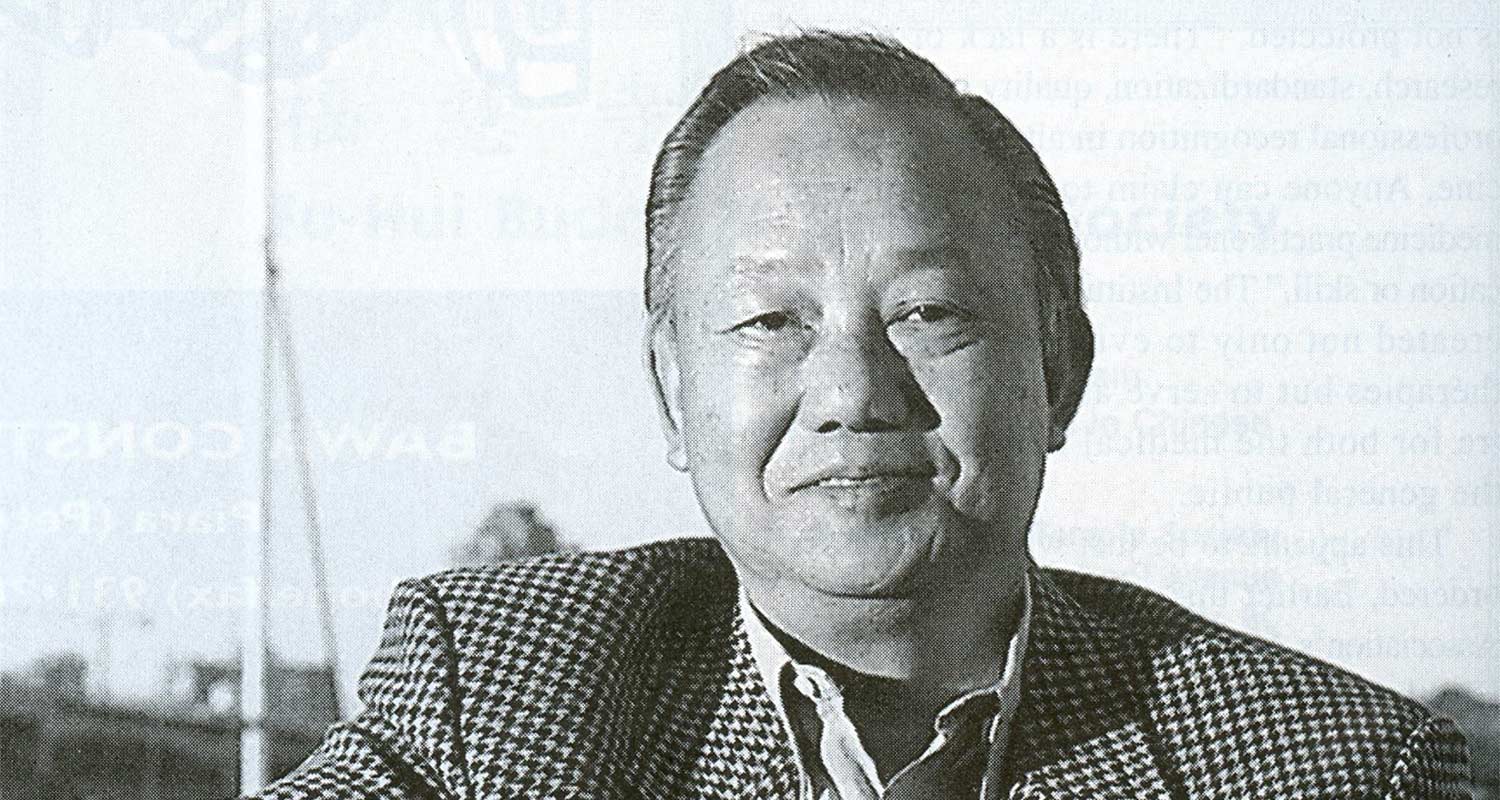Teresa Clarke grew up in an environment where medicine could come in the form of a pill or a “strange soup.” Her uncle, a Western-trained doctor, would come to the rescue for acute emergencies like asthma attacks; her nanny would fetch herbs from the Chinese doctor to cure the long-term trouble of bedwetting. Dr. Clarke grew up in Hong Kong, where combining more than one school of medicine in treatments —known in North America as integrative care—is commonplace. By the time she trained as a doctor at the University of British Columbia, Traditional Chinese Medicine (TCM) was a lost childhood memory of bad-tasting brews. Then, in the 1990s, her fascination with the body’s healing abilities inspired her to train as an acupuncturist. Now she focuses on cancer: an ailment needing both immediate and long-term care. As part of the Vancouver team at not-for-profit InspireHealth, she supports cancer patients as a Western MD, while helping connect them with nutritional and lifestyle education, and an array of alternative modalities that support healing.
Integrative Care Shows Results Despite Non-Believers
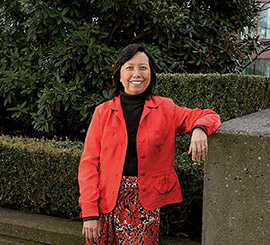
InspireHealth is Canada’s only government funded integrative cancer care organization. In 2010, they received a grant of $2.5 million from the British Columbia Ministry of Health to expand their services through four new centres across the Lower Mainland, and to develop an online service for rural communities. B.C.’s decision to increase funding for InspireHealth, with its integrative model, could mean that the understanding of health and medicine here is in the midst of change.
Integrative care has been a contentious topic in medicine, the subject of criticism by members of the Western medical community. The concern is that these practices don’t have a scientific basis, which is not necessarily the case.
InspireHealth highlights their legitimacy as an organization, and by proxy the legitimacy of the alternative modalities they practice, through years of documentation tracking above-average patient survival rates. Internal records published in their 2009 Annual Report demonstrate, for example, patient survival rates for those with stage 3 and 4 lung cancer. While BC’s average survival rate is 23 per cent within the first year of diagnosis, InspireHealth found a rate of 53 per cent in their patients.
Wealth Over Health
Linda Turner, Program Manager for Langara College’s Integrative Energy Healing program and burgeoning Traditional Chinese Medicine program, believes money, not effectiveness, bars integration of alternative practices into the mainstream due to the fact that studies are often funded by pharmaceutical companies. The payoff for these companies is the development of saleable products. In the case of many alternative treatments, such as acupuncture, there’s no payoff. It can’t be made into a pill. But medical investigation continues despite financial barriers. Cochrine Analyses —rigorous investigations respected by the Western medical community—have been conducted in the study of acupuncture, and they prove that acupuncture is effective in the treatment of targeted ailments. Turner insists, exasperated, “the literature is so conclusive it’s ridiculous.”
Hospitals in Hong Kong and China agree. When studying acupuncture in Shanghai, Dr. Clarke found that one hospital’s pharmacy was divided into half Chinese herbs, half Western drugs: “Doctors could actually write prescriptions for Chinese herbs as well as Western drugs within the same hospital.” An entire acupuncture department was on call. “They’ve got someone with intractable hiccups after surgery— nothing they could do about it: bring up the acupuncturists. There’s no drug for it…. They recognize the strengths of acupuncture, what it can do in areas where the Western drugs aren’t suitable.”
In B.C., integrated care is still relatively taboo, although BC Health recognizes and regulates TCM and acupuncture licensing, and some extended health plans in B.C. cover acupuncture. The former Tzu Chi institute at St. Paul’s Hospital, where InspireHealth acupuncturist Gerard Tan worked, offered acupuncture services to patients of all kinds for years. It was funded through non-governmental fundraising, and eventually collapsed. InspireHealth’s achievement of increased government funding represents a success in the goal of mainstreaming integrated health— though the organization still relies heavily on private donors, as well as the Canadian Breast Cancer Foundation and the Canadian Cancer Society.
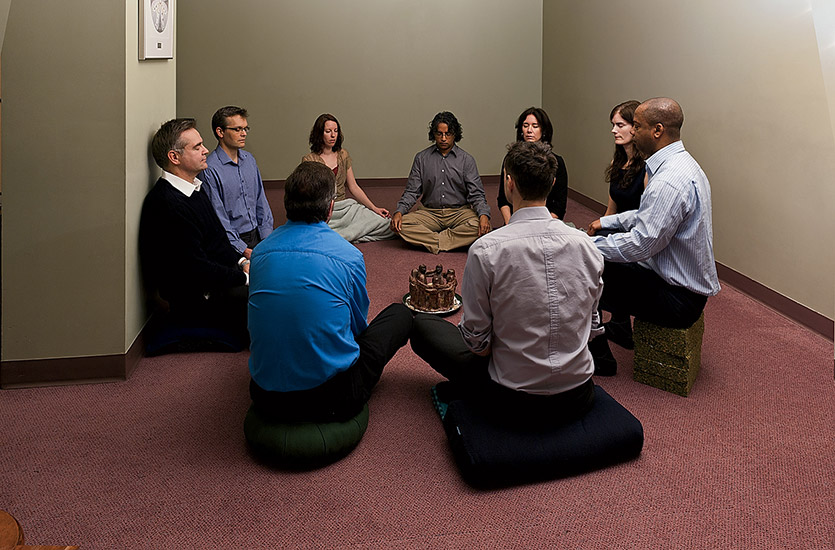
Increase Of Cancer Patients Asking For Alternative Methods of Treatment
The secret to InspireHealth’s funding success may be what they call their patient-centered approach. Tan insists this approach is, at its essence, “actually nothing more than Chinese medicine incorporated into Western medicine…. In Chinese medicine we say that you the patient [are] most important, and also that you are part of the healing; we use Chinese medicine like herbs, massage, acupuncture, to make your body stronger so that you feel empowered that you can get better.” To InspireHealth, a patient-centered approach means supporting and nourishing the whole patient first, above attacking the disease.
It also means asking patients what they want. Dr. Clarke points out the Ministry of Health initiative, Conversations on Health, in which the Ministry asked the public what it wanted from its health care system. She wonders if Conversations on Health led the ministry to InspireHealth. When she attended a talk, she found that patients were asking for the services InspireHealth offers. Dr. Clarke says InspireHealth’s offerings are shaped by patient feedback— everything offered is the product of popular demand.
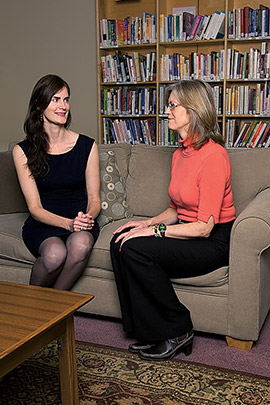
If it’s true that InspireHealth’s services are catered to cancer patients’ desires, then cancer patients want holistic health services, nutritional counseling, and acupuncture. Stacy Sherlock, who had a negative experience with Western medicine during her cancer treatment, is part of the chorus. Her main criticism is lack of communication. She was having bladder pain and had a 15-minute consultation with a specialist about it. She was told she probably had a disorder of the bladder involving polyps that would need to be removed yearly. They looked at the growth in her bladder through a camera, and then they scheduled a surgery to remove it. When she arrived to her surgery weeks later, Sherlock was told they were treating it as a cancer surgery—a total surprise. She didn’t have time to prepare for the possibility that she might have cancer until moments before she went under the knife. And then the biopsy results came back positive.
After the operation, Sherlock continued to suffer consequences of communication failure. After three bleary post-surgery days, she realized she was painfully constipated. She tackled the situation with folk remedies, but the pain escalated, nothing moved, and soon she couldn’t keep food or water down. She went to the emergency room, where her doctor had told her to go if his office was closed. Her status as a recent post-op cancer patient, directed there by her doctor, didn’t get her on the priority list; instead, the intake nurse snapped at her. She spent seven hours waiting, rolling around on the floor in pain. When a paramedic caught the nauseous look on her face and offered her a container, she loudly refused it, declaring her intention to vomit on the floor in order to get the attention she deserved. After that she was swiftly tended to. Propped up because she couldn’t stand on her own, she had to undergo x-rays to see if something had been sewn inside her by mistake.
The culprit of her pain and constipation was an uncommon side effect of anesthetic: total muscle paralysis, in this case of her digestive tract. “No one mentioned that,” she says. She didn’t know to watch for it, though her medical history warrants special attention to digestion. As a teen, Sherlock barely survived an infection of flesh eating disease in her intestines, which required surgery to remove part of her intestinal tract, leaving it scarred, sensitive, and unable to digest certain foods. In the end she was given a powerful laxative and instructions to use it carefully. It wasn’t pretty, but it worked.
With all the complications she experienced, Sherlock would have liked more communication about food. She was prescribed a post-op diet restricting meat and caffeine for three months, but after that she felt lost. It was her family acupuncturist who finally talked to her about what foods would work long-term, and why.
Patients Simply Want To Be Heard And Given Proper Information
If Sherlock can be taken as an example of a typical cancer patient, with typical expectations and desires about treatment, then InspireHealth is fulfilling its mandate of catering to those expectations and needs. An initial consult with a doctor is an hour and a half, with half-hour appointments after that. The team is more than eager to provide information. They advocate for patients to pursue effective conventional cancer treatments such as surgery and radiation, while helping them find their way through those treatments comfortably, efficiently, and effectively. InspireHealth has food covered, with free programs on nutrition and cooking. Patient Cathy Danyi describes her experience with InspireHealth as a combination of “information, choice, and a feeling of control.”

If BC Health, through their funding of InspireHealth, is placing increased emphasis on patient feedback and delivering more varieties of effective treatments, then the health system in this province could be changing. However, the expansion budget awarded to InspireHealth covers only MD salaries, not practitioners of alternative modalities. Doctors who have studied acupuncture, such as Dr. Clarke, can help patients receive treatments by integrating acupuncture into their services — a growing trend that delights Tan. He says it is becoming common for doctors to take basic acupuncture courses, and he feels doctor advocacy is one of the most powerful tools in mainstreaming acupuncture in Canada. However, after years of medical school most MDs aren’t about to take another three-year, full-time certification to become certified acupuncturists, which would allow for more complex treatments. At this time, Tan’s wages are subsidized through funding from private organizations, and he charges on a fee-for-service basis.
Does InspireHealth, then, truly serve the needs of the public? Is it affordable and accessible? Probably, for the average middle-class family. A membership costs about $400 annually and includes the LIFE program, a community-building education program to help patients feel empowered in their healing process. Scholarships are available, covering membership costs, and InspireHealth has practitioners who make affordability a priority. Tan chooses a plain, low-rent basement office to treat InspireHealth patients and other clients. The simple multi-room space allows him to treat multiple patients simultaneously and to offer better rates. InspireHealth also has free services, such as meditation and fitness classes.
Could the financial and patient success of InspireHealth mean innovation in the BC Health care system? Does it signal a trend towards the integration of TCM and alternative medicine into our hospitals and doctors’ offices? Maybe. Around InspireHealth’s cozy waiting room, a growing collection of hard evidence points in that direction. Respected doctors advocate the benefits of integrative care in meetings with patients who demand it. All of them slowly co-create understandings of what health really means to them. Whatever the trajectory of health care at large, InspireHealth continues to represent a philosophy of listening and learning on a patient-by-patient basis, approaching goals in manageable steps, and positive thinking — philosophies that sound true from both a western and eastern perspective.






